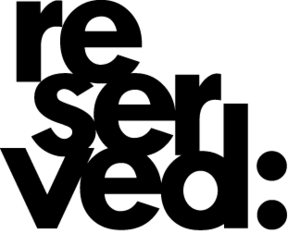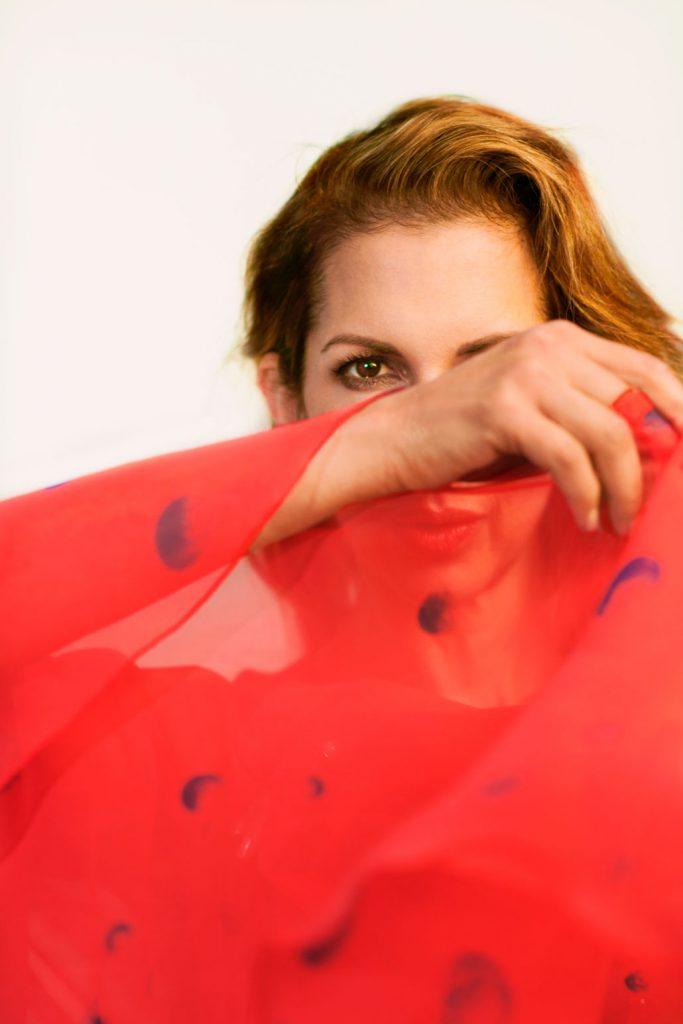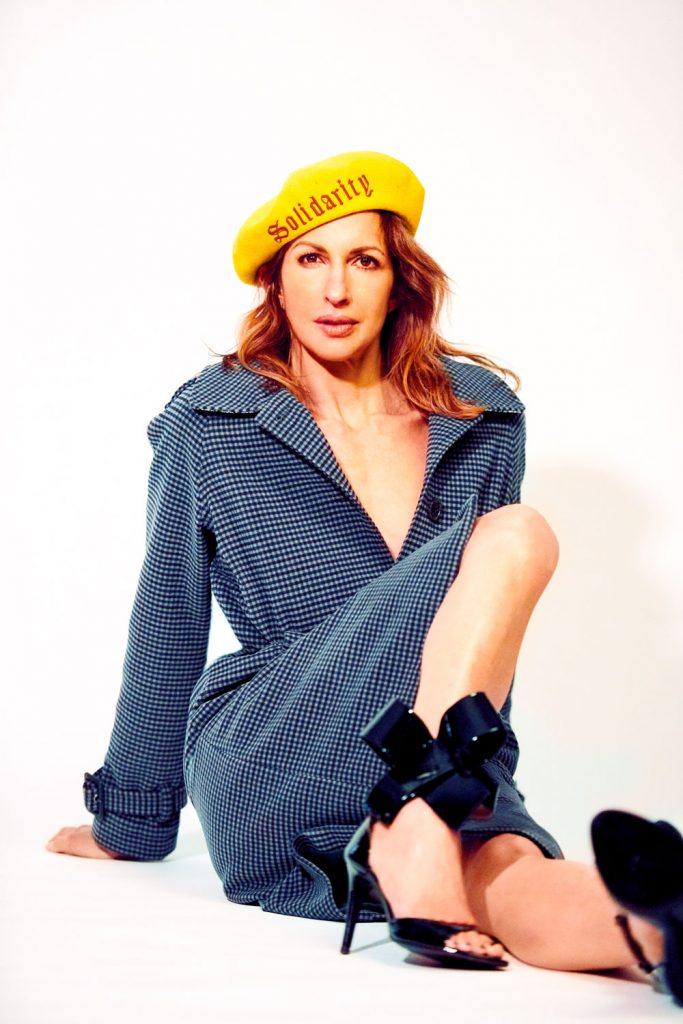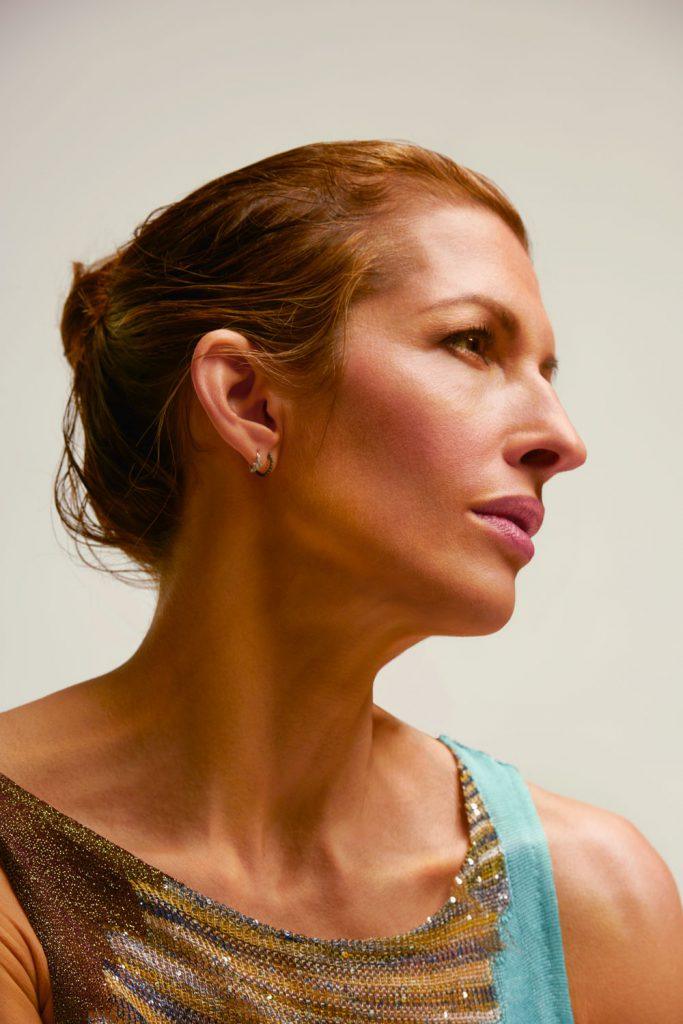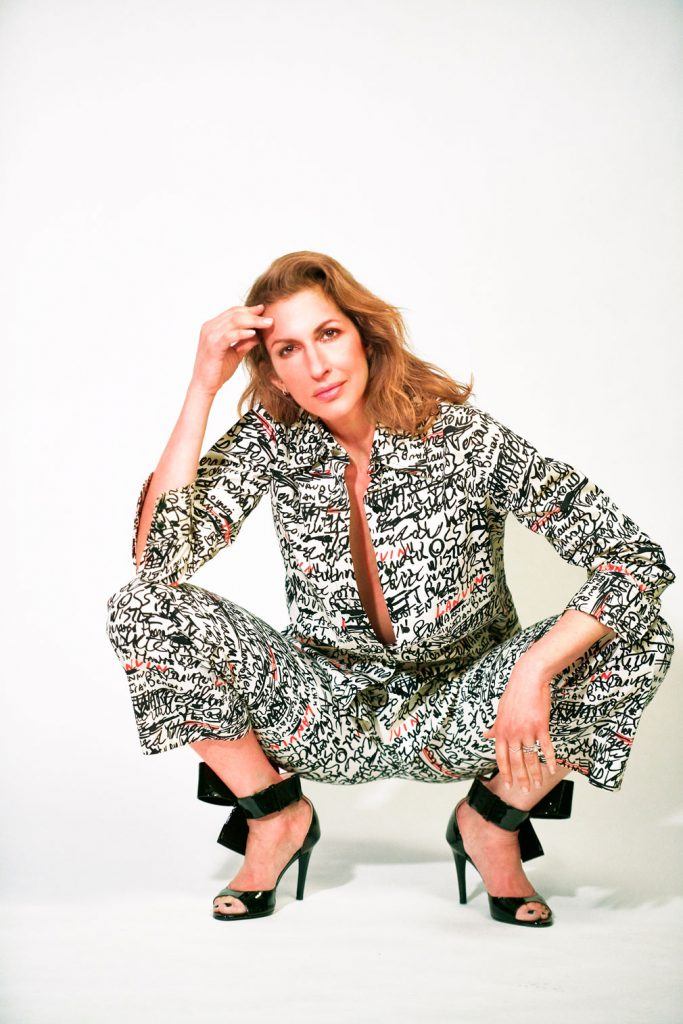
It is a historic time in the history of the United States. More women than ever are running for president, educational opportunities are slowly advancing for women globally, and America has returned to having a female Speaker of the House. However, the fight for women’s rights and equality still rages on fiercely, and one of the biggest topics surrounding that issue in these contemporary times is motherhood.
Alysia Reiner’s storied acting career has most recently includes roles in Better Things, How to Get Away with Murder, The Deuce, and most notably a SAG award for Orange Is the New Black. The actor recently took on the role of actress and producer in the Marianna Palka directed film Egg written by Risa Mickenberg. The film explores the challenges of the patriarchy, women’s choices to be a mother, class differences, and feminism. Reiner sat down with Reserved to discuss what the film says about feminism, women’s choices, the state of motherhood, and how the world is changing for women.
Reserved: Why did you want to produce this movie?
AR: I first did a workshop of it many years ago. I loved that the characters said all of these things I never heard anyone say out loud that people are usually afraid to say. I then got involved with a lot of TV work and bumped into the writer, who had just done a rewrite. I couldn’t believe how topical, engaging, and funny it was. It’s a lot of things we still have not talked about, particularly in this moment. It’s about thinking and restructuring how we as a society handle gender and sexuality. We still have these deeply antiquated role structures. We still have these paradigms and expectations around parenthood. We begin to look at that and our willingness to change those structures that might not really serve us. Art is this magical way to have people start to talk about these things.
Reserved: Do you see your character Tina as sort of a new modern woman?
AR: I don’t think anyone is the new modern woman. What I’m most interested in is having people who watch it remember to have the curiosity and courage to define who they want to be. I want them to have their own definition of what that is as a man, woman or gender non-conforming person. It’s about trying to find your own truth and what works best for you.
Reserved: Talk to me about creating the character of Tina.
AR: I think in creating the character of Tina I did a deep dive into what it means to be a contemporary feminist artist. I did a lot of research. I researched some of my heroes, like Miriam Shapiro, and some contemporary heroes, like the Cindy Sherman and Zoe Buckman’s of this moment. They’re these incredible women who inspire me and I’m inspired by what they are creating art about. There is, in fact, a woman who has documented her entire birth. She gave birth live on stage, and has been making documentary movies about her raising a child. I did a deep dive into that, and then I just tried to play moment by moment with these humans in the movie. You can’t really think a lot about how you’re saying something. You just do the research to make sure everything you’re saying is true for that human in that moment. What’s so spectacular about film making is it’s not just me. It’s the director, the editor, the cinematographer, and a whole team of people.
Reserved: What do you think this film says about women and mental health?
AR: I come back to the same answer, my truth is that in this moment in time, in 2019, particularly with our current politics, my experience of making this film and being in it, when we are willing to live in our truths, we are happier. But, finding our own truth is harder, especially in our world today as our world gets more complex. As our relationships get more complex, from our live relationships to our social media relationships, our role structures need a facelift. The expectation on women to be all they need to be, the perfect mother, the perfect partner, a worker, and in this case an artist, and expressing oneself is a lot. We don’t talk about a lot of it, and they are sort of assumed role structures in many relationships that aren’t explored. We need to ask what really makes all of us happy and what do we need in this relationship. For example, with Tina and her partner Wayne, they did have those conversations and made some real agreement to have a partnership where neither of them wanted to have a child, then all of a sudden he wanted a child, and Tina twisted herself into a pretzel trying to make that work. Then you have Tina saying, ‘What if it’s an art project, and I break the rules, and I become sort of a father figure instead?’
Reserved: Tina and her friend Karen chose very different paths in their lives. What do you think this film says about different paths of womanhood?
AR: It was our goal to explore female friendships in a way we haven’t really seen on film. We made this film right after the election and finding out 53% of white women had voted for Trump. My personal experiences were there were friends of mine with whom I may have disagreed, but how do we navigate listening to each other? What does it mean to be a friend in a relationship? What does it mean to love and support someone even if you disagree with them? This film explores that in a way I’ve never seen before on film.
Reserved: Some of her comments on women’s pregnancy rights are a bit…ahead of their time.
AR: Sometimes things are said for affect to shake people up, make them feel. Those feelings we may have are typically put in our journals, but she says them. She wants people to rethink these role structures. A lot of what she says is true. If government and businesses are going to devalue women’s work, why not outsource pregnancy? I recently read in the New York Times about working women and how hard work/life balance is.
Reserved: For someone who doesn’t seem to want children, Tina really defines Karen by her pregnancy.
AR: That’s her blind spot. We all have blind spots. She’s in a moment. One of the most fascinating things to me about film, and art, and life is when you meet someone they are in a moment. We decide whether we like them or not in that moment. In this moment we see Tina in a vulnerable moment. She doesn’t start crying, she puts on a lot of layers and pretends. She was living her truth. She had an ideal relationship, then Wayne wanted a child, and wanted to bring another woman into the relationship. Again, she’s bending herself into a pretzel trying to make that work. Seeing, Karen, this other pregnant woman, is pushing every single button. She throws out all these barbs, but at the end of the day she protects this woman when she tells Karen’s husband, Don, that they’re having a boy, which is what he wanted.
Reserved: The film also touches upon the difficulty of abortion.
AR: I think, similar to everything we have touched upon, the actors, writers, and directors desired to just bring up and bring air to some of these subjects so that people do talk about it and really dig deep in exploring their own choices, and have awareness that every choice has an impact.
Reserved: After it all, do you think the patriarchy still wins?
AR: No, I don’t, because I’m an eternal optimist. Tina doesn’t lose herself, but, I do feel Tina not only survives but thrives, and does have the courage to live her truth. That to me is yet another chip in the patriarchy wall. Every woman who stands up says ‘I refuse to live in this patriarchal way, and I’m going to find my own truth’ means the patriarchy hasn’t won.
Reserved: So, what other projects do you have coming up?
AR: The last season of Orange Is the New Black premieres this summer, I’m shooting The Deuce, Better Things season 3 is on FX now. I also have a few TV shows in development, so we’ll see!

